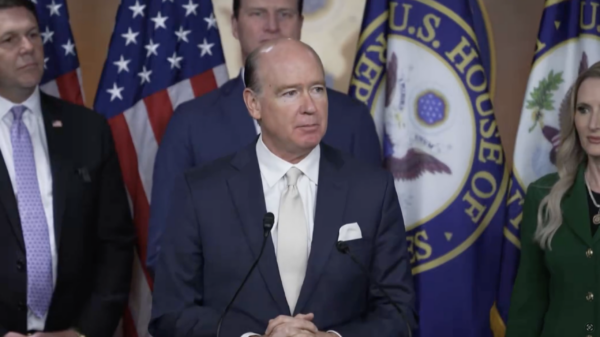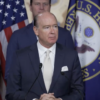Proposals heard this month by the Alabama State Health Planning and Development Agency are seeking to improve the patient capacity of hospitals and care centers across the state.
During June meetings of SHPDA’s Statewide Health Coordinating Council, as well as the department’s Certificate of Need Review Board, council and board members heard proposals seeking to strengthen the capacity of Alabama’s mental health, geriatric care and physical rehabilitation therapy services.
One proposal made by Coosa Valley Medical Center, which was heard and approved by SHDPA at their June 10 SHCC meeting, would add an additional five beds to the hospital’s existing 20 bed geriatric care unit, as well as 20 adult mental health beds.
Coosa Valley Medical Center Chief Executive Officer Glenn Sisk told APR the proposal seeks to strengthen the hospital’s existing geriatric psych unit and fill a growing need for adult psychiatric beds.
“We currently have an occupancy rate of about 82 percent on that unit,” Sisk said of the hospital’s geriatric psych unit. “So, certainly, the need is significant for additional beds.”
“We’ve also identified a void in in the area—not only in the county, but really in the region—for a lack of adult mental health beds, which continues to be a growing concern in the area,” he continued.
Following the SHCC’s approval, the proposal must be approved by the CONRB and signed by Gov. Kay Ivey, a process Sisk estimated will take until September to accomplish.
“If approved and then signed by Governor Ivey, that would give us 12 months to take a few steps that would keep the approval alive, and that could include significant progress in the renovation work. It could include a binding agreement with the general contractor and such,” Sisk said. “We would like to move quickly. We believe, again, in the need for both the expansion of our senior behavioral unit along with the addition of those 20 beds are going to be very important for the community.”
Sisk said the proposal comes at a particularly important time for Alabama’s mental healthcare system, saying population increases anticipated across the state may put increased strain hospitals whose mental healthcare beds are nearing or at capacity.
“We have seen a growth in providers throughout the state beginning to try and respond to a growing concern as it relates to mental health beds or lack thereof,” said Sisk.
According to Sisk, over the past year Coosa Valley Medical had to transfer 49 adult psychiatric patients to other facilities due to a lack of beds. In some cases, this meant patients had to be held in the hospital’s emergency departments for multiple days while waiting for a vacancy.
In 2024, the hospital’s senior behavioral unit was also forced to deny admissions to 123 geriatric patients who would have otherwise qualified for care due to a lack of space.
Sisk said a lack of psychiatric care beds places strain on a hospital’s emergency department by creating a backlog of patients. He also described the emergency department as a challenging and inadequate setting for properly treating patients experiencing mental health crises.
“The emergency department is not the right place for mental health patients to be kept and retained. They need to be in a safe environment where mental health delivery can be maximized, and so we’re very excited about the ability to get that accomplished,” he said.
When asked what he believed the next steps for improving Alabama’s mental healthcare system are, Sisk pointed to Medicaid expansion.
“The State of Alabama has made the decision not to expand Medicaid, which is incredibly unfortunate for those that could have benefited,” he said.
Sisk highlighted studies that show roughly 300,000 Alabamians would have benefitted from Medicaid expansion. He also pointed to a Forbes Advisor study ranking Alabama as the third worst state for mental healthcare delivery.
“Unfortunately, more than one half of the patients in the state don’t have access to care based on their underinsured and uninsured status,” Sisk said. “Certainly, we believe that, in an expanded state where Medicaid expansion has occurred, access to care for mental health patients is greatly enhanced.”
Sisk said while the proposal awaits approval from the CONRB and Ivey, Coosa Valley Medical has begun searching for funding sources to cover renovations necessary for the proposal.
“We are anticipating the need to identify operational and capital support internally, and we have also begun exploring opportunities, both at the state and federal level, that could provide additional support for much needed beds,” he said.
During its June 18 meeting, an additional four proposals aimed at improving healthcare bed capacity at facilities across the state were heard and approved by the CONRB.
This includes a proposal for Springhill Hospital in Mobile, which would add 20 inpatient rehabilitation beds to an existing 18 beds.
Encompass Health Rehabilitation Hospital of Dothan also proposed an additional 10 inpatient physical rehabilitation beds to its existing 56.
Dominion Senior Living of Birmingham proposed the construction of a specialty care assisted living facility as part of a senior living community to be developed in Mountain Brook.
The new facility will include 32 memory care beds relocated from Jefferson County’s Summit Life Care, as well as 98 independent living units and 32 assisted living facility beds.
North Alabama Shoals Hospital proposed an additional 2 inpatient adult psychiatric beds.
Bridgeway ABA Therapy in Elmore County also proposed to add physical, occupational and speech language therapy to its existing facility currently offering behavioral analysis therapy.

















































